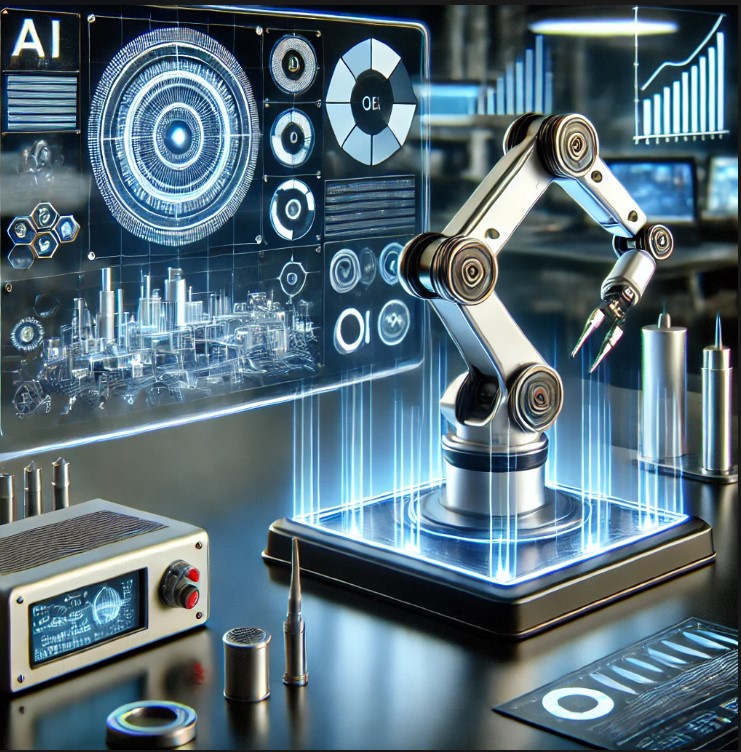
AI in product development is revolutionizing industries at an unprecedented pace, helping businesses create more innovative products and services. Startups, in particular, are embracing AI-driven technologies to gain a competitive edge, enhance customer experiences, and streamline operations. But can AI truly build better products and services, or is it just another technological hype? Many industry leaders and entrepreneurs argue that AI is not just a tool but a game-changer.
AI in Product Development: Transforming Innovation
AI in product development is fundamentally reshaping how businesses create new offerings. Traditionally, product development involved long cycles of research, prototyping, and testing. With AI, companies can accelerate these processes by leveraging predictive analytics, automation, and machine learning algorithms to analyze market trends and customer preferences.
AI-Driven Market Research
Startups are using AI-powered analytics tools to process vast amounts of market data. By analyzing consumer behavior, sentiment analysis, and historical trends, AI can help businesses identify gaps in the market and develop products that better align with customer needs. Platforms like Forrester provide insights into AI trends that drive market research forward.
Personalized Product Recommendations
E-commerce giants like Amazon and startups alike use AI in product development to provide personalized recommendations. By utilizing machine learning algorithms, businesses can analyze user behavior and suggest products tailored to individual preferences, improving customer engagement and satisfaction.
Enhanced Prototyping and Testing
AI-powered simulations allow companies to test product prototypes in virtual environments before they are physically built. This reduces costs and minimizes the risks associated with traditional trial-and-error methods. Startups in the automotive and aerospace industries, for example, are using AI in product development to design and test prototypes with greater accuracy and efficiency.
AI in Product Development: Improving Service Delivery
Beyond product development, AI is also transforming the way services are delivered. From customer support to healthcare, AI-driven solutions are making services more efficient, accessible, and personalized.
AI Chatbots and Virtual Assistants
AI chatbots have become a staple in customer service. Startups and established businesses alike use AI-powered chatbots to handle customer queries, process orders, and provide instant support. Unlike traditional customer service models, AI chatbots operate 24/7 and can manage thousands of interactions simultaneously, reducing wait times and improving user satisfaction.
Predictive Maintenance and AI in Healthcare
AI is making waves in predictive maintenance, particularly in industries such as manufacturing and healthcare. For example, AI can analyze sensor data from machinery to predict when maintenance is needed, preventing costly breakdowns. In healthcare, AI-driven diagnostics help doctors detect diseases earlier and recommend personalized treatments, improving patient outcomes. Research from Mayo Clinic highlights AI’s role in advancing medical diagnostics.
AI in Financial Services
The financial sector has embraced AI for fraud detection, risk assessment, and personalized banking. Fintech startups leverage AI in product development to analyze spending habits and provide tailored financial advice. AI-driven algorithms also enhance security by detecting suspicious transactions in real time, protecting customers from fraud. For more on AI’s impact on finance, visit Crypto Stock Empire.
The Startup Advantage: AI in Product Development as a Game-Changer
Startups are uniquely positioned to leverage AI because of their agility and ability to innovate quickly. Unlike large corporations with rigid structures, startups can rapidly implement AI solutions and experiment with emerging technologies.
Cost-Effective Innovation
AI reduces the need for large teams and expensive manual processes. Startups can use AI-driven automation to handle repetitive tasks, allowing human employees to focus on strategic decision-making.
Scalability
AI enables startups to scale their operations efficiently. For instance, an AI-powered customer support system can handle an increasing number of queries without requiring additional staff, allowing businesses to expand without significantly increasing costs.
Data-Driven Decision Making
Startups that harness AI in product development can make smarter business decisions based on real-time data. AI algorithms analyze customer feedback, market trends, and competitor strategies, providing valuable insights that help businesses stay ahead of the competition.
Challenges and Ethical Considerations in AI in Product Development
While AI presents numerous advantages, it also comes with challenges and ethical considerations that startups must navigate.
Data Privacy and Security
With AI relying heavily on data, startups must ensure they adhere to strict data protection regulations. Customer trust is crucial, and mishandling personal data can result in severe consequences. Organizations like GDPR Info provide guidelines on compliance for businesses using AI.
Bias in AI Algorithms
AI systems can unintentionally reinforce biases present in the data they are trained on. Startups need to ensure their AI models are designed with fairness and inclusivity in mind to prevent discriminatory outcomes.
Dependence on AI and Job Displacement
As AI automates various tasks, concerns about job displacement arise. Startups must find ways to balance automation with human employment to create sustainable growth opportunities.
The Future of AI in Product Development
AI in product development is no longer a futuristic concept; it is actively shaping the way businesses operate today. From improving product development cycles to enhancing customer service, AI is empowering startups to build better products and services that meet evolving consumer demands.
Key trends shaping the future of AI in product development include:
- Enhanced AI-Powered Market Research: Startups will leverage AI to gain deeper insights into consumer behavior and preferences.
- AI-Driven Customization: Businesses will integrate AI-driven customization into product offerings, ensuring hyper-personalized experiences for users.
- AI in Sustainability Efforts: Companies will use AI to develop eco-friendly products and optimize supply chain efficiency.
As AI continues to evolve, businesses that embrace its potential will gain a competitive advantage. However, success will depend on how well startups can integrate AI responsibly, ensuring ethical considerations and human oversight remain at the core of innovation.
In the end, AI is not replacing human creativity and problem-solving—it is amplifying it. The startups that recognize AI in product development as a strategic enabler rather than a mere tool will be the ones leading the next wave of innovation.
